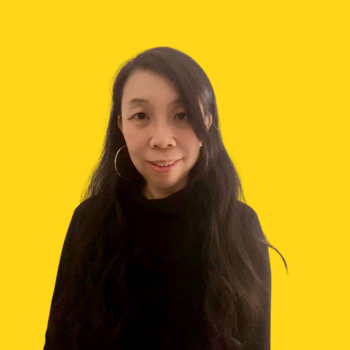
In this month’s newsletter, we would like to introduce PhD student, Sook Yee Helena Song from the College of Nursing and Health Sciences.
Helena’s recently submitted thesis, “Understanding Disabled Malaysian Students’ Technology Use and Practices in the University: A Social and Relational Perspective” received outstanding results from the examiners.
We asked Helena to share what led her to a Phd and why it is important, the most enjoyable and hardest parts of a PhD journey and what the future holds.
Tell us about your research?
Many disabled students are going into university to study, but we do not have enough information about them and their use of technology to support them in their studies. I wanted to find out how and why disabled students, particularly Malaysian students, use technology to support their studies. I was interested in both positive and negative experiences, particularly from the students’ own perspectives.
In my research, I focused on listening and speaking respectfully in my interactions with the students. Their opinions and feelings are important to me. My goal was to find out in what ways technology help them in the university from their own personal experiences rather than from other people. Each student is unique, hence also experience technology in different ways. I chose to highlight these unique experiences in my study.
I found that technology is a social tool. For disabled students, it was important to consider how technology made them feel about themselves, and their capabilities. Technology also allowed them to learn in different ways suited to their needs. It enabled them to do some things they were not able to before having access to technology and the internet.
![]()
What led you to undertake a PhD? What inspired or motivated you?
The academy was, and still is, strewn with “symbolic violence” against the marginalised and subaltern communities, all in the name of seeking knowledge. As a former academic in Malaysia for 20 years, I had personally witnessed how unequal power relations were played out in this field – between lecturers and students, researchers and the researched, supervisors and supervisees, and heads of departments and subordinates. Higher education spaces are wrought with power struggle narratives.
Unfortunately, many of these important narratives are hidden as “subordinate people do not have the privilege of explicitness, the luxury of transparency, the presumptive norm of clear and direct communication, free and open debate on a level playing field that the privileged take for granted” (Conquergood, 2013, p. 34). Through the participants’ stories in this PhD study, I sought to privilege and make visible their hidden voices. I also sought to highlight their stories of resilience and resistance.
What was one of the most enjoyable parts of the journey?
Engaging and listening to the students’ stories was the most fulfilling part of my PhD journey. Their openness in sharing parts of their lives with me remains something that I cherish tremendously. It was a privilege being entrusted to retell their stories. I needed to ensure that I was attentive to their narratives beyond what was spoken during the interviews. Voices and stories do not happen in a value-neutral vacuum – they are politically, socially, and culturally constructed.
How did your supervisors support you during your candidature?
I couldn’t ask for a better principal supervisor in Associate Professor Dr. Amanda Müller. Compassionate, genuine, and pragmatic – beautiful inside-out. I was truly blessed knowing that every advice and decision made throughout my PhD candidature was for my good – especially in producing a thesis that I can be proud of. She took time to care not only for my studies, but for my well-being. Blessings to you, Dr. Amanda.
Having Professor Sally Robinson in the supervisory team was crucial in shaping my final thesis document. Her thorough comments and feedback were extremely valuable in ensuring that my thesis met the standard expected. I am truly grateful for her full commitment to support me in finishing this race. I couldn’t have done this without her. Sally, thank you for your calm reassurance and genuine care.
![]()
How has your PhD influenced your future career? Where do you see your career heading in the future?
I would definitely like to close the gap between research and practice in terms of advocating and championing for digital accessibility and inclusion for all disabled people. Digital inclusion is a human-rights issue. For many of us, technology make things easier. For majority of disabled people, it made things possible.

